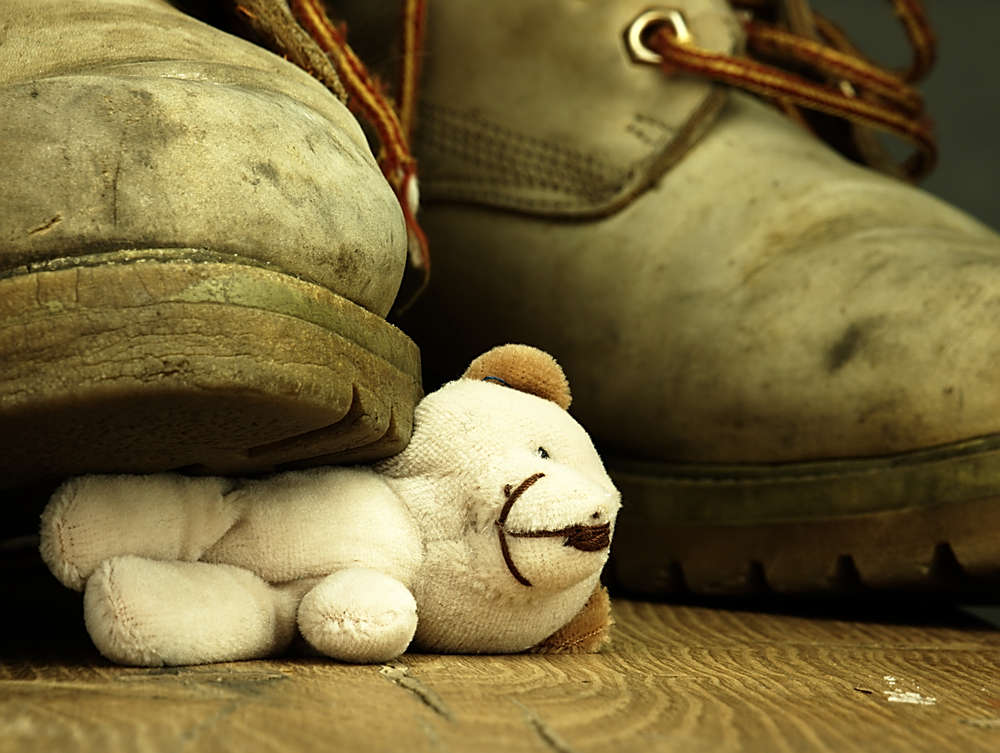How would it feel to have excessive, sometimes even dangerous clutter as your playground growing up? For the children of people who hoard, this is their reality. When you think of hoarding, your mind might immediately jump to shows like Hoarding: Buried Alive and cut to scenes of decaying homes, crumbling under the pressure of thousands of items piled on top of one another. The on-screen living spaces are often unusable, and, at times, the accumulated clutter can even make entering the home through the front door seem more like navigating a minefield. In some homes, mounds of trash or insect and rodent infestations are shown scattered all over the floor.
Hoarding is estimated to affect more than 5% of the population.1 Shows like the famous TV feature provide televised glimpses into a serious condition that’s affecting individuals and their families all over the country. But what’s it like as a child growing up in this kind of home?
While family members are usually quick to urge their loved ones who hoard to get treatment, few seek help for themselves, in the form of support groups or adjunct therapy, to learn how to cope with the presence of hoarding in their lives. In fact, previous studies have found that family members and caregivers of hoarders often harbor feelings of frustration, rejection, and hostility.2 However, no study has really looked at how this compulsion to “bury” oneself in stuff affects the young people involved—that is, until now. My colleagues and I set out to examine what’s long been dismissed: the unique relationship between parents who hoard and their children.
Grown Children of Hoarders Share Their Experiences
To really look at the long-term effects of how living in a home affected by hoarding might influence a child, we decided to observe adult children of hoarders. Recruiting 150 adults who grew up with parents who exhibited hoarding behaviors, we dove deep into the mysteries of this unique home life.
To observe this relationship, we presented participants with an online questionnaire. How long did they live with the parent with hoarding behaviors? How old were they when the parent began displaying these behaviors? Was the parent aware of his/her own hoarding symptoms? If so, how aware? How would they describe the quality of their relationship with said parent? Was it functional or dysfunctional? These were some of the questions driving our research. The variables were then examined alongside the severity of the parents’ hoarding behaviors. What we found wasn’t too promising for children who find themselves in the crosshairs of a hoarding disorder.
Hoarding Negatively Affects Parent-Child Relationships
Here’s what we discovered in families with parents who hoard:
- Lack of Awareness: Most parents who hoarded lacked awareness of the severity and consequences of their behaviors.
- High Dysfunction: Family dysfunction was generally high in families of hoarders, marked with conflict and difficulties with emotional expression within the home.
- Low Communication: Children often lived in an environment of low communication. This came with feelings of alienation and distrust.
- Low Quality Relationships: There was a decreased quality of parent–children relationships, even as these children grew into adults.
- Lack of Acknowledgement Drove Frustration: The more the parent failed to acknowledge the fault in their hoarding behaviors, the more frustration, resentment, and anger built between them and their children at home.
It became apparent to us rather quickly that hoarding not only affected hoarders, but it also made a significant impact on their offspring. We found that children who grew up with parents who hoard often lived in environments tainted by high conflict, poor problem solving, and low support. As a result, parent-child relationships in these homes were often negatively affected.
How to Help Children of Hoarders
With a clearer understanding of the negative impact of hoarding on children, the natural next question is: now what? One thing that remained clear after our study was the lack of resources aimed specifically at helping kids with parents who hoard. Because hoarding by parents may be harmful to the psychological health of their children—as shown by our research—addressing their needs is important, and usually the burden falls on other family members.
While no current go-to treatment exists for these children, there are still ways to confront the issue. For one, helping children learn effective and healthy coping skills can go a long way. This can be done by something called “guided imagery”; in other words, closing the eyes and imagining oneself in a calm and peaceful state in moments of heightened tension. However, not every child is open to this kind of approach. For more structured, longer-term treatment, both individual therapy and support groups can also be helpful. Ultimately, we hope that this new understanding of children living in hoarding households will encourage the mental health community—and families of hoarders themselves— to make strides towards real resolutions for families.
Sources
1 Samuels, J. F., Bienvenu, O. J., Grados, M. A., Cullen, B., Riddle, M. A., Liang, K. Y., et al. (2008). Prevalence and correlates of hoarding behavior in a community-based sample. Behaviour Research and Therapy, 46, 836-844.
2 Tolin, D. F., Frost, R.O., Steketee, G., Gray, K. D., & Fitch, K. E. (2008). The economic and social burdern of compulsive hoarding. Psychiatry Research, 160, 200-211.
Jennifer Park, PhD, is a licensed clinical psychologist and serves as the Clinical Director of Rogers Behavioral Health’sSan Francisco East Bay location and is an adjunct faculty member at Stanford University School of Medicine. Dr. Park is an expert in cognitive behavioral therapy (CBT) and the treatment of children and adults with Obsessive-Compulsive Disorder (OCD), Obsessive-Compulsive Spectrum Disorders, and anxiety disorders. She received individual research funding from Harvard Medical School and has also collaborated on various National Institutes of Health funded research projects. Dr. Park graduated from Amherst College with a Bachelor of Arts in psychology and received her PhD in clinical psychology at the University of South Florida.



